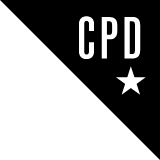Seeing around corners
In a changed world, where a ‘new normal' is nowhere in sight for now, public relations must develop new approaches to decision-making, problem-solving, and scenario planning, writes Jon White.
Some years ago, in a series of interviews with CEOs about what they expected from public relations, the then CEO of Ofcom Stephen Carter, now known as Baron Carter of Barnes Group CEO of Informa, said "[Public relations] is very often about no surprises. The real benefit of public relations is about being able to see around corners and anticipate, in public relations terms, what is vital to us [as an organisation]. It's about the vital handling of a multiplicity of relationships."
It was good to hear such a clear statement, concerned with the way relationships need to develop into the future if objectives are to be realised and issues managed. And it shares concern for the future with other consultancies, researchers and others looking at developments in practice. In recent years, much emphasis has been placed on ‘thought leadership' - topics likely to affect clients, which lead them to seek advice. The management consultancy McKinsey exemplifies this approach.
Researchers, conference organisers and event planners also look to subjects that can be parlayed into significant and valuable research projects, conference themes and events.
For nearly thirty years, the International Public Relations Research Symposium held annually in Bled, Slovenia, has tried - mostly successfully - to look ahead each year and identify the theme the conference organisers believe will be current and pressing in the following year.
The participants - mainly researchers attached to universities around the world - come away from the meeting with insights they feed into their continuing work. But this year, 2022, was an exceptional one, and a consequence of the discussions needs drawing out for a wider audience.
INFLECTION POINTS AND CHANGED CONTEXTS
The theme of the conference this year - a hybrid meeting with face-to-face and virtual presentations and discussions - was rebooting, re-establishing communication and relationships between organisations and their members and groups following the pandemic.
However, a keynote presentation - delivered remotely from Ukraine by Dr Dmytro Oltarzhevskyi, Professor of Advertising and Public Relations at Taras Shevchenko National University of Kyiv - changed the context for the conference theme.
Assumptions made a year earlier that the world would be emerging from the constraints of the pandemic and returning to - that greatly overworked expression - a ‘new normal' have been shown to be misplaced, and not just by the organisers of the Bled meeting.
One of the leading thinkers currently writing on business strategy, Rita McGrath, a professor at Columbia University Business School, writes in her book Seeing Around Corners: How to Spot Inflection Points Before They Happen about inflection points. These change the business landscape: in the jargon, they change the paradigm, the framework, and the set of ideas business operate on - in ways which may create opportunities or lead to devastating consequences.
In a podcast, she describes an inflection point as "some typically external shift that has a 10x impact on the taken-for-granted assumptions on which we are operating. In business, it tends to be something that makes your current key metrics obsolete or out of date. In life, in general, it's something that really changes the nature of possibilities that you have or that you're confronted with".
What the keynote speaker at Bled was talking about was an inflection point that changes the assumptions that we have to work with.
Commentary on McGrath's ideas includes suggestions from Jeff Bezos that seeing inflection points coming is not the biggest challenge. Public relations and public affairs practitioners reading this may ask what makes identifying inflection points so different from work done in issues and crisis management. What Bezos emphasizes are the implications for the taken-for-granted ways we do business.
"Assumptions that the world would be emerging from the constraints of the pandemic and returning to a ‘new normal' have been shown to be misplaced."
KNOWLEDGE AND ASSUMPTIONS
The invasion of Ukraine by Russia on 24 February changes the assumptions we make about the world in which we're now working, doing business and addressing challenges. These were already significant because of the pandemic, and they've been compounded by the developments in Ukraine.
Writing in the Harvard Business Review in 1995, McGrath pointed out that conventional planning works on the idea that managers can "extrapolate future results from a well-understood and predictable platform of past experience - solid knowledge rather than on assumptions".
Now, though, solid knowledge based on past experience is far less useful in the face of changing circumstances, and the assumptions we have to work on have to be tested and turned into new knowledge, through a process she calls discovery-driven planning.
Our knowledge based on past experience has included, over many years since the ending of World War II, the laws and rules governing international relations in an orderly world, established approaches to managing economic affairs, international trade and business practices. It has convinced us of standards and capabilities of leadership in many national settings, and allowed for certainty that the future will allow for progress, and for solutions to the challenges we face.
"Practitioners must break out from the limitations of group think, by getting ‘out of the building' and not remaining closeted with like-minded people."
THE NEW DIFFICULTIES
Now, for argument, we could say that the underlying rules of international relations have been - at the least - found wanting, and have been threatened not only by Russia's actions, but also by other national governments' public commitments to disregarding international agreements.
Economic arrangements are not working for many, internationally and in national settings. Leaders are struggling in face of the challenges consequent upon emerging from the pandemic, the world-wide fallout from developments in Ukraine and the clear consequences of climate change.
McGrath again on leadership in ambiguous and uncertain environments: leaders need to move beyond the old command-and-control mindset, to "stop pretending you know all the answers. In a highly uncertain and fluid environment neither you nor anybody else has answers. Arguing about being right or having a detailed plan going 18 months out is just wasting your breath".
Instead, she says, what's important is to articulate and pinpoint the major uncertainties and how insight about them may be gained. She has practical suggestions for recognising coming inflection points for business. Business organisations need to:
- Open themselves to communication with people who may disagree or who may have different vantage points
- Break out from the limitations of group think, by getting "out of the building" and not remaining closeted with like-minded people
- Court diversity in terms of viewpoint
- Be willing to experiment, "to encourage little bets that are rich in learning, ideally distributed across the organisation"
Organisations also have to act on impending change, or in dealing with the consequences of an inflection point that has brought out the difficulties involved in the challenges we face. These difficulties are being felt in real terms, as efforts are made to deal with inflation, rising energy prices and the social unrest and disruption which will likely follow in a number of countries.
CHALLENGES FOR THE PUBLIC RELATIONS
Dealing with the current consequences of disruptive change on the scale discussed here requires new approaches to decision-making, planning and to problem-solving - McGrath's discovery-driven planning offering one such approach.
The challenges for public relations here will be to insert the insights available in practice, and from the experience that has been developed over the years in risk identification and assessment, issues and crisis management, into thinking about the new assumptions needed to underlie work in government, business and other organisations.
In this, practice needs to work from a stronger evidence base, using more developed research capabilities, and more expertise in the use of techniques such as scenario planning.
Practitioners also have experience over the years of working with so-called ‘wicked problems' but have not recognised their work in this area of problem-solving by capturing experience and discussing it in detailed case studies.
Another continuing challenge for practice is how to make better connections to the work done by researchers, to encourage more relevant research, to collaborate with universities and research groups to open practice questions to research examination and development.
We are, as the Bled conference organisers believed, when they contemplated this year's theme, now living in a changed world - one that they may not have foreseen in mid-2021 when the conference theme was developed - but one that has passed through an inflection point and in which we now have to look for advantages in its consequences.
.jpg&w=728&h=90&maxW=&maxH=&zc=1)

